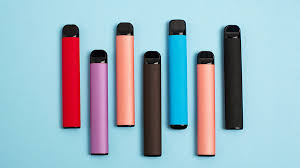Costa Rica To Ban Synthetic Nicotine In Vaping Products
Costa Rica to ban products containing synthetic nicotine, including vaping liquids and e-cigarettes.
It cites health risks and a rise in vaping-related treatments. While some applaud the decision, others in the industry express frustration.
The Ministry of Health has issued a regulation banning the sale and use of vapes containing synthetic nicotine, often known as Non-Tobacco Nicotine Products (NTN).
With the current popularity of vaping and electronic cigarettes (e-cigarettes), an increasing number of individuals are using synthetic nicotine. According to authorities, investigations have shown that synthesized nicotine molecules are hazardous to human health.
These gadgets, vapes, and e-cigarettes, are marketed as nicotine alternatives. Synthetic nicotine is produced in a laboratory and does not originate from tobacco leaves. There are several techniques for producing synthetic nicotine, and each manufacturer protects their processes with patents.
In a decisive move aimed at protecting public health, Costa Rica has banned the use of synthetic nicotine in vaping products. This regulation marks a significant step in the country's ongoing efforts to curb nicotine addiction and its associated health risks, particularly among young people.
Synthetic nicotine, also known as tobacco-free nicotine, is created in a laboratory setting rather than being extracted from tobacco plants. Its appeal lies in its purity and the fact that it doesn't contain some of the harmful impurities found in tobacco-derived nicotine. However, its rise in popularity has also led to increased scrutiny due to concerns over health impacts and regulatory loopholes.
Vaping has surged globally as an alternative to traditional smoking. Marketed as a less harmful option, e-cigarettes and other vaping devices often use nicotine-infused liquids to deliver a hit. Initially, these products were seen as a tool to help
smokers quit. However, they have increasingly attracted non-smokers, particularly teenagers, leading to what many public health experts describe as a vaping epidemic.
One of the primary health concerns with vaping is the addictive nature of nicotine, regardless of its source. Synthetic nicotine has complicated regulatory landscapes worldwide because it's not derived from tobacco, making it a grey area in many tobacco-related laws and policies. This has allowed manufacturers to market their products without the same level of scrutiny and taxation as traditional tobacco products.
In Costa Rica, like many other countries, the rise in vaping
among youth has alarmed public health officials. Studies
indicate that vaping can serve as a gateway to traditional cigarette smoking, potentially reversing decades of
progress in tobacco control. The long-term health effects of inhaling vaporized synthetic chemicals are not yet fully understood, further driving the urgency for regulation.
This ban is part of a broader strategy that includes public education campaigns, restrictions on advertising and rigorous enforcement of age limits for purchasing.



